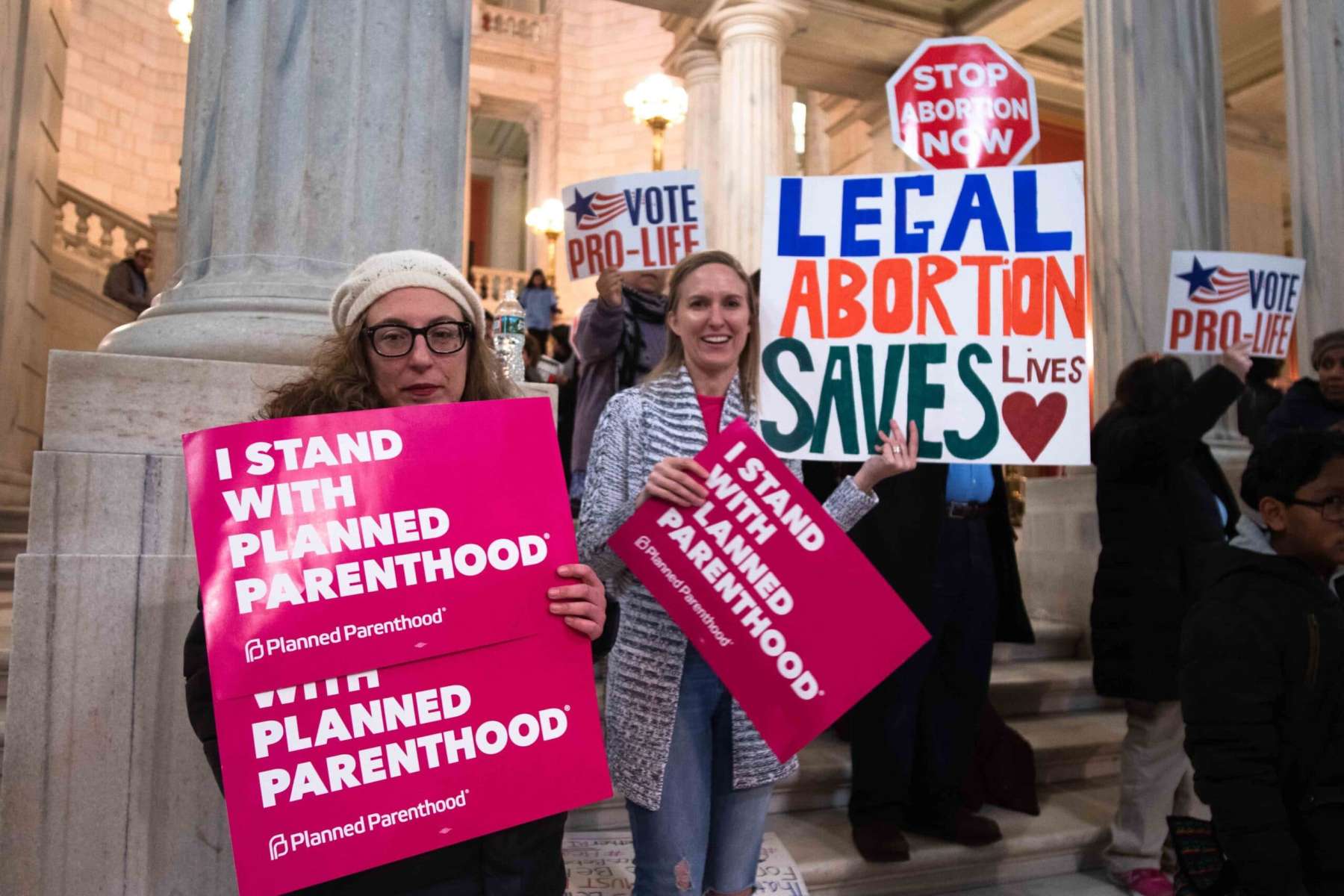Nancy Green: Why we need the Reproductive Health Care Act
I was walking past Planned Parenthood and saw a pamphlet taped to a light pole, The Truth About Planned Parenthood, by that billboard-buying organization, ProLife Across America. This one targeted Black women with claims that they are complicit in racial genocide. Or too dumb to know what they are doing when they make the profound decision to end a crisis
February 3, 2019, 10:26 pm
By Nancy Green
I was walking past Planned Parenthood and saw a pamphlet taped to a light pole, The Truth About Planned Parenthood, by that billboard-buying organization, ProLife Across America. This one targeted Black women with claims that they are complicit in racial genocide. Or too dumb to know what they are doing when they make the profound decision to end a crisis pregnancy. The race angle is a cynical attempt to get their misogynistic message out. They assume all women are too dumb to know better, otherwise they would have to acknowledge that women do know what they are doing. It is necessary to somehow disappear the woman in order to discuss pregnancy as if her agency and humanity are irrelevant. It takes a heavy dose of religion to justify denying a woman’s capacity for moral choice. It takes a very selective outrage to overlook that fact that the babies they picture on their billboards are a target of the ‘entitlement cuts’ their political allies campaign on.
Before Roe v Wade women with unintended pregnancies weren’t “saying yes to life,” they were just bad women who failed to stay pure. No choice and no voice.
The “pro life” industry claims to want to eliminate abortion but abortion has always been practiced and needed. Life is complicated and what people say they want is sometimes different from what they choose in their personal lives.
Defending the right to abortion has some of the same challenges as defending the right to divorce. States began to remove restrictions on divorce in the 1970s, the same decade as Roe v Wade. I remember, for years, hearing people condemn divorce and criticize the masses of women who were supposedly dumping their husband because he squeezed the toothpaste tube in the middle.
I don’t personally know anyone who divorced without pain. And divorce is hard on actual children, not potential children. It’s easy to imagine billboards with happy couples: “Marriage, What a Beautiful Choice.” And just like parenthood at the right time, a good marriage is a blessing. But people have circumstances and reasons why they can’t stay married. Sometimes the reasons are obvious to outsiders, sometimes not. Sometimes the home isn’t safe for the children or anyone else.
The transition to no-fault divorce was a huge social change. And it is contrary to many religions. In an attempt to bring more religious values into civil law, three Southern states instituted “Covenant Marriage.”
“Covenant marriage is a type of marriage that is only available, as of 2017, to Americans living in three states: Arizona, Arkansas, and Louisiana. Those who participate in a covenant marriage agree to attend counseling both before the marriage, and before the possibility of divorce. They also agree to wait a longer period of time than normal for their divorce to be finalized, to give them a longer time frame in which to be sure divorce is the course they wish to take.
“Despite the intentions behind the drafting of covenant marriage law, the three covenant marriage states have seen very few couples get married under covenant marriage law. For example, covenant marriage in Louisiana was at only about 1 percent of marriages during the period of 2000-2010. The other 99 percent of couples chose to marry under the standard laws that permitted no-fault divorces in the event their marriages should end. In another of the covenant marriage states, Arizona, on average, sees their rate of covenant marriage range from 0.25 percent to 1 percent.
“These numbers were similar for Arkansas, the last of the three covenant marriage states. This is particularly interesting because Arkansas has one of the highest divorce rates in the nation, with an average of 6.5 divorces per 1,000 population, yet still there are very few couples who are interested in signing up for a covenant marriage.”
Supporting the right of people to terminate marriages that they can’t bear isn’t exactly the same as being enthusiastically “pro divorce,” or thinking that divorce is always the right choice. People sometimes regret divorce. But it’s telling that people in three heavily religious states, when given the choice, almost universally chose not to hand over their right to end a bad marriage to state authorities, or opt to have to explain to a judge why they needed to make that choice. Of course, the choice to pass on “covenant marriage” is one that affects men and women more equally. The painful debate on abortion divides the genders, with some of the loudest voices coming from those who can never become pregnant.
Supporting the right to safe and legal abortion without interference or shame is not the same as being enthusiastically pro-abortion. Of course it is better to prevent unwanted pregnancy. And the anti-abortion people are dishonest when they blur the distinction between unplanned and unwanted pregnancy. Almost half of pregnancies are unplanned. It’s an unwanted pregnancy that’s a crisis.
Most Rhode Islanders don’t want the state to codify church teaching into law and don’t support new restrictions on legal abortion. The Reproductive Health Care Act would maintain the rights that women have now in the event the Supreme Court rules against Roe v Wade. We need this legal protection for abortion, and support for the access to education and contraception that has proved to reduce the rate of crisis pregnancy and abortion in the United States and worldwide.






